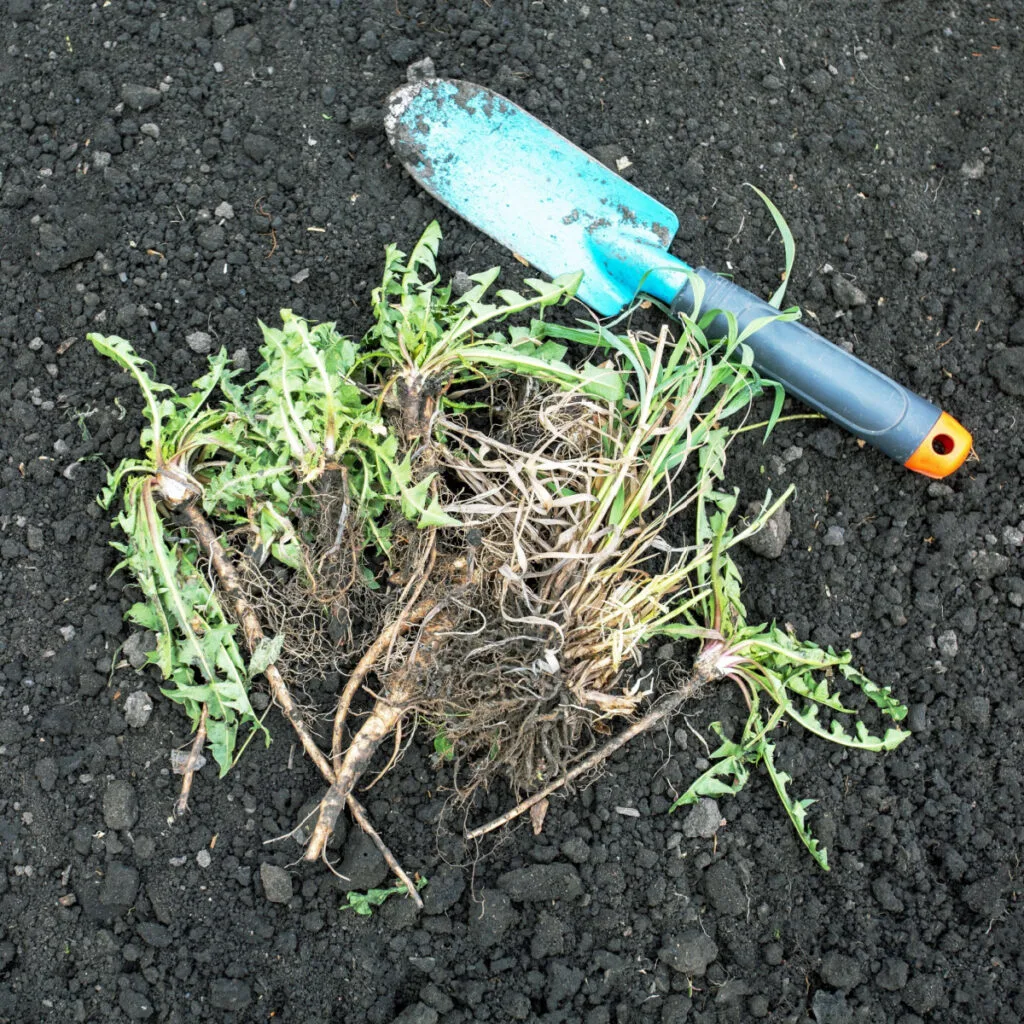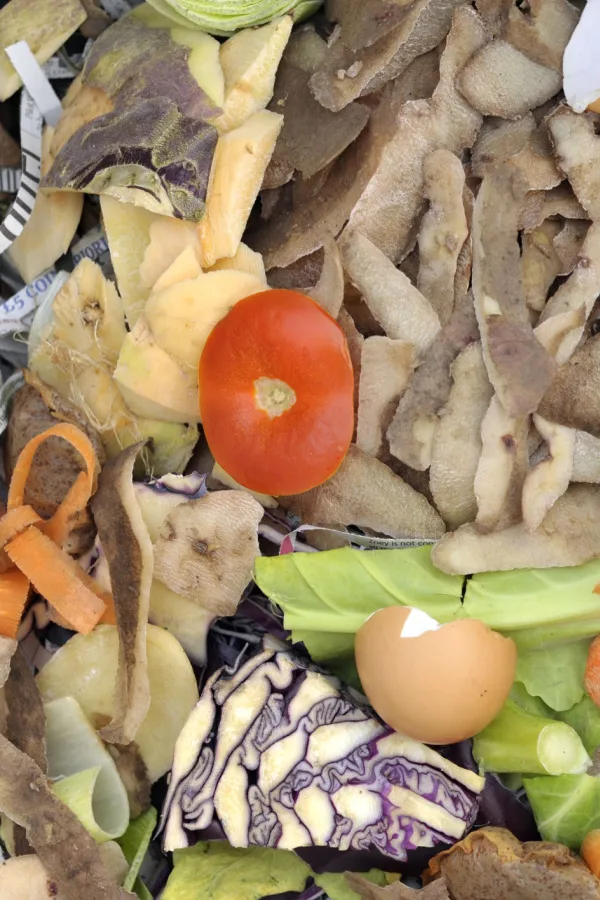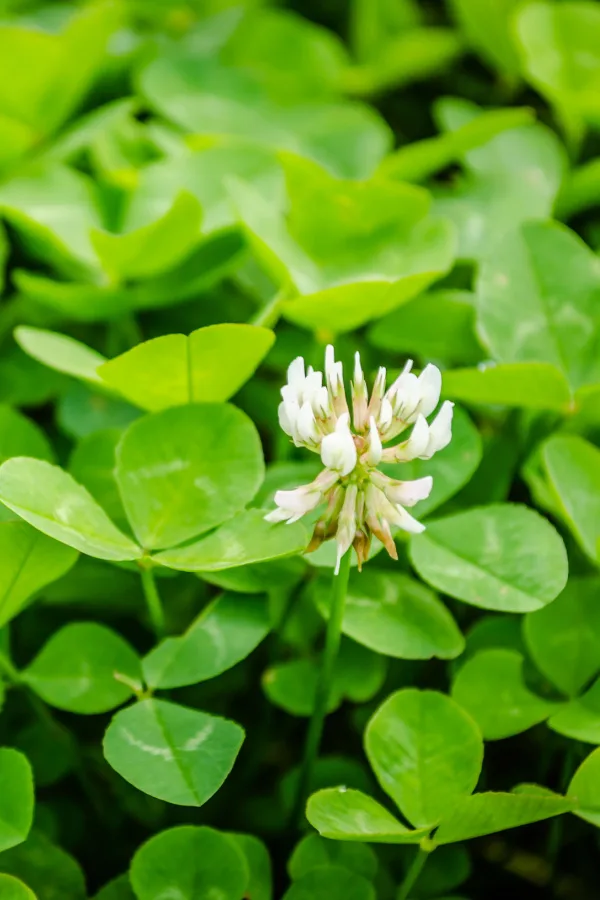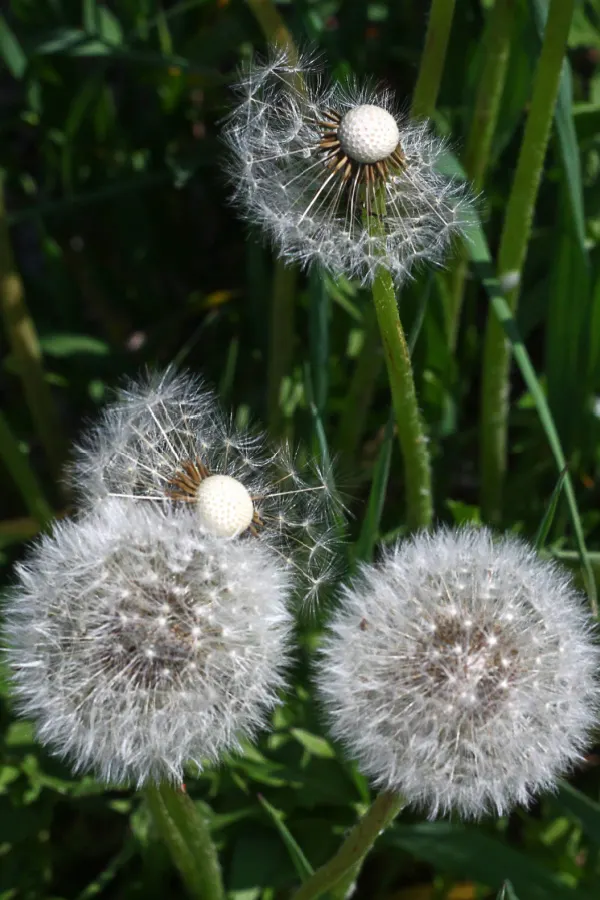Want to know if it is possible to compost weeds in your home compost pile? One thing is for sure, the topic always brings up a lot of questions and debate among gardeners!
On one side, some gardeners will tell you that placing weeds in a compost pile is simply asking for trouble. By doing so, you risk having your finished compost turn into a planting medium for seeds wherever you use it.
On the other side of the argument are gardeners who feel that the nutrients in weeds can be extremely beneficial to home compost piles. Not only can they help you create more compost for free, but the compost will be more balanced with the added power they bring to a compost pile.

One thing is for sure, all gardeners can agree that creating and using compost can pay off big for the health and growth of trees, plants, flowers and vegetables. Not only is compost packed full of nutrients, but all that organic matter helps to improve the soil composition on your property.
So which side of the debate is correct when it comes to composting weeds? As it turns out – it really all depends on how and what part of the weeds you compost!
Goals With Making Compost – How To Compost Weeds
Composting is a great way to recycle and reuse organic products from your home and property. From dry fallen leaves to shredded cardboard, crushed eggshells and more, all of these materials help to create a product that is like no other.
The finished result of all these materials breaking down and decomposing is a supercharged soil amendment that you can use to improve and power the plants and trees around your home. (They don’t call it “black gold” for nothing!)
Not only is the compost good for your soil, but it’s good for your environment as well. You can reduce the amount of trash that winds up in local landfills when you choose to compost instead. It truly is a win-win!

You can compost on a large-scale level where you have multiple 3-foot by 3-foot bins. Or, you can compost on a small scale level by only filling a couple of 5-gallon buckets with compostable products. Each method is great a way to improve your soil while reducing your amount of trash at the same time! And yes, that can include composting weeds safely when done correctly!
Composting Weeds At Home
What Really Is A Weed?
The first step in this debate is understanding what a weed really is. Technically speaking, a “weed” is a plant that is unwanted and competing for plants that are cultivated. But when it comes to plants and gardening, it’s important to realize that the term might be different for two different people.
For example, some people consider dandelions to be a weed and a huge nuisance. They fill your beautiful lush green grass with bright yellow blooms that eventually turn into little white puffballs. And don’t forget how they seem to grow 10 inches the day after you mow your yard!
But to others, dandelions are an excellent pollinator plant, helping to attract bees, butterflies, and more. In addition, some people even use dandelion for food as well. You can make everything from dandelion jelly to sauteed dandelion greens and wine from this “weed.”
So does that mean dandelions can go into the compost pile and benefit the compost? Or will they be more of a pain if they are added to the pile? And the same question applies to clover as well!
Is Clover A Weed? – How To Compost Weeds
Many homeowners trying to keep an immaculate turf lawn would consider clover to be a weed. But clover can also be beneficial on so many levels.

Not only does it feed important pollinators like bees, but it also helps to fix the nitrogen levels in the soil, allowing other plants around it to grow better. In fact, it works so well in providing nutrients that many gardeners use it as a cover crop! (See, “How To Plant A Green Manure Crop”)
The point is that all green living plants are teeming with nutrients and can be beneficial in their own ways. And because of that, weeds can be extremely valuable as they decompose in a compost pile – just the way a non-weed plant can be. That is, of course, as long as you are using a bit of caution when adding them to your home compost pile!
When And How To Compost Weeds
Even though weeds are a great addition to a compost pile by helping to add nutrients and organic matter, there are a few risks you take when including them. You can reduce those risks by taking two simple steps prior to adding them to your pile.
Remove The Seeds
As with any plant material going into your home compost pile (i.e., flowers, vegetables, fruit, etc.), always be sure to remove any seeds prior to adding them to your pile. This includes the seeds within the fruit or vegetables – or the flower heads themselves.

Unfortunately, most home compost piles just don’t heat up to high enough levels to kill the seeds from plants. And because of that, the seeds can easily hang out only to be carried and sprouted wherever you go to use your fresh compost.
Avoid Certain Plants – How To Compost Weeds
In addition to keeping the seed heads out, you should also avoid plants that reproduce from their roots. A great example of this would be the Canadian thistle.
Canadian thistle can be a nightmare to eradicate from flowerbeds and gardens. Its long, tenacious roots can produce hundreds of runners and buds to create a seemingly endless supply of new plants. These roots might not break down well enough in compost piles, allowing them to regenerate once the compost has been used around your property.
But beyond these few precautions, there is little worry about adding “weeds” to your compost pile. Not only is it a great way to create more compost for free, but it finally gives all of those weeds a purpose in your landscape!
Follow Our Facebook Page For Great Gardening Tips And Advice! This Is My Garden Facebook Page
This Is My Garden is a garden website created by gardeners, for gardeners. Jim and Mary Competti have been writing gardening, DIY and recipe articles and books and speaking for over 15 years from their 46 acre Ohio farm. They publish three articles every week, 52 weeks a year. Sign up today to follow via email, or follow along!
